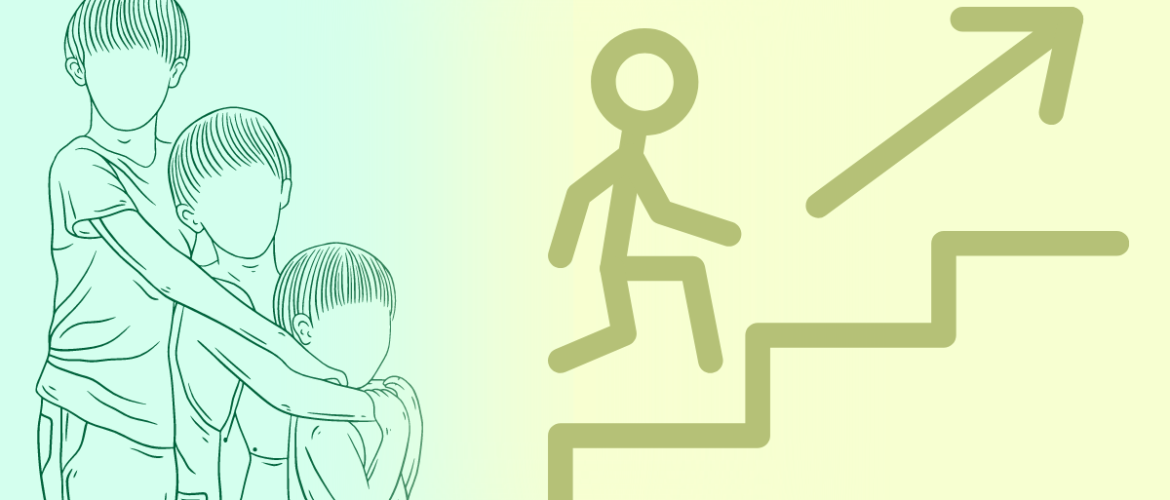Blog
How Birth Order Affects Psychology
- April 25, 2023
- Posted by: Healthy Young NV
- Category: Teen Young Adult

Everyone knows that whether or not you have siblings affects your personality as you grow up. It also affects how you react in different situations. Knowing whether or not your friends are the oldest, youngest, middle, or only children can help explain why they act the way they do. This is called birth order. Birth order is defined as a person’s, “rank by age among siblings,” (Chandola, Rupali & Tiwari, S., 2016). Even though this may be common knowledge, birth order seems to have more physical effects on people and their lives. There have been many studies on how birth order affects things like self-confidence and mental health. These studies can focus on different sample populations (or groups of people to test) and different areas of interest.
One study was done on baseball players in the MLB in 2010. The scientists tested a theory that younger siblings are more likely to, “participate in high-risk activities,” than older siblings. To test this, the researchers looked at 700 brothers who stole bases. This data showed that younger brothers were 10.6 times more likely to steal bases, and 3.2 times more likely to do it successfully (Sulloway, F. J., & Zweigenhaft, R. L., 2010). The researchers also analyzed 24 previous studies about birth-order and risk-taking. These results also showed that high-risk activities were more often done by younger than older siblings. Each baseball player’s goal is to win the game. This study found that birth order affected what different players did to help them win. There was a study in 1968 whose results were strengthened with this baseball study. The study in 1968 concluded that younger siblings were more likely to participate in dangerous sports than eldest siblings (Nisbett, 1968).
Other studies focused on each sibling’s self-esteem and mental health. One study concluded that first-borns and only children had much higher levels of self-esteem and happiness (Schwab, M. R., & Lundgren, D. C., 1978). Another study found that middle-children had the lowest levels of self-esteem and happiness (Kidwell, J. S., 1982). There have been multiple studies that have worked off of this belief or added their data to it. However, that doesn’t mean that this idea is automatically true. A study conducted in Japan found no significant differences in self-esteem with siblings ages 7 to 12. Assuming each researcher has perfect data, there are many factors that can’t be controlled when looking at sibling order. The study in Japan studied 7-12 year olds, when the other two studies were based on young adults. These studies also asked each participant at only one point in their life. This could give inaccurate results. Confidence and self-esteem change throughout everyone’s life. Being older and more comfortable in their body could affect the data a lot. For example, this study would have stronger results if they asked the participants to answer the same questions at ages 7, 12, 18, and then 25. Then researchers could analyze the data and observe how age would change it.
Conducting studies looking at how birth order affects different areas of people’s lives is a difficult one. It is very difficult to create a study that will have no outside factors changing the data. It is also hard to have participants define difficult concepts like self-esteem, or happiness. These ideas mean different things to different people. They are also more likely to be measured in different ways. This can contribute to a study’s inconsistent or inconclusive results. In this case, these studies can be used as a starting point for future studies to gain more evidence on the effects of birth order. The conflicting studies and inconclusive results show that there is more to be done. This is why researchers are constantly reworking and analyzing their data. Their work will help us understand how birth order affects a person’s personality and way of thinking.
This article was written by Maali-Yolanda. This is her third year studying biochemistry and sociology at UNR, and she is a student ambassador for High Sierra AHEC.
References:
https://pubmed.ncbi.nlm.nih.gov/20435800/
https://psycnet.apa.org/record/1968-08718-001
Picture References:
https://www.freepik.com/premium-vector/school-teens-group-giving-hug_1724031.htm

